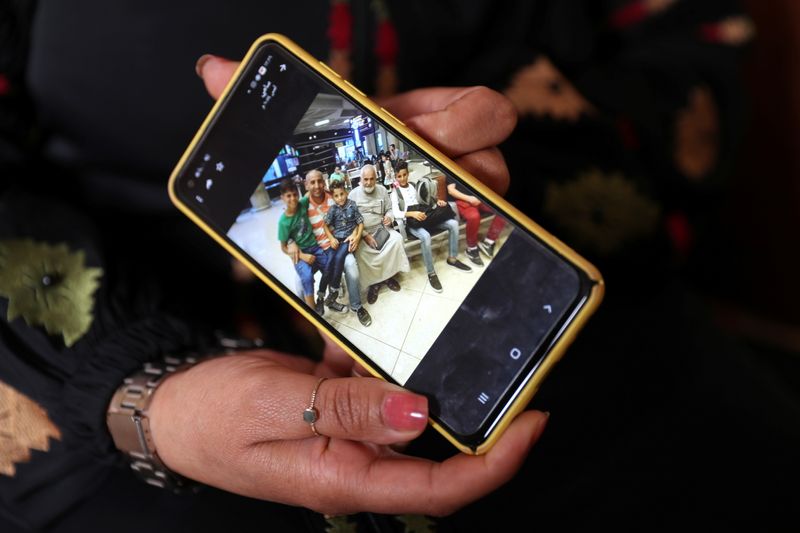By Nidal al-Mughrabi and Zainah El-Haroun
GAZA/QALQILYA (Reuters) - Sunday is Mother's Day across most of the Middle East but, for the third year running, Gaza resident Niveen Gharqoud will be forced to spend it without four of her five children.
They haven't met since 2018, when she sent them to live with their father Sami in Qalqilya, a West Bank city east of the military wall that separates Israel from the occupied Palestinian territories.
She lives in Juhr Edeek, a village just west of a separate border fence that isolates the Gaza Strip. In between the two barriers is Israel, which she is not allowed to cross.
So the only way Gharqoud and the one child who still lives with her can bridge the 120 km (75 miles) gap is electronically.
"One hour is all I need to be with my children," Gharqoud said as she prepared for her Mother's Day cellphone call. "Nothing will satisfy me but to be with my children on Mother’s Day."
Behind the family's separation is a complex system of restrictions that Israel applies in the territories that it captured and occupied in a 1967 war.
Israel says it needs the system to protect its own citizens. Palestinians say it is unfair and arbitrary.
Gharqoud hoped the bulk of her family would be better off outside Gaza, and that she could join them later.
"(But) three years of attempts didn't work for me," she told Reuters. "A checkpoint is standing between my children and me."
COGAT, Israel's military liaison to the Palestinians, said it limits to "humanitarian-exceptional cases only" the number of Palestinians allowed to travel to Israel and the West Bank from Gaza because the enclave is controlled by Islamist militant group Hamas.

COGAT said Gharqoud's application to travel was denied "after being carefully examined" because it did not meet the necessary criteria.